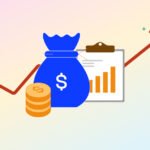Socials
“The philosophy of the rich and the poor is this: The rich invests their money and spend what is left. The poor spend their money and invests what is left” — Robert Kiyosaki.
‘Rich Dad, Poor Dad’ {#1 New York Bestseller} is a book written by Robert Kiyosaki and Sharon Lechter in the year 1997. This antique book stresses and emphasizes the value of investments and financial freedom either by owning various startup businesses, investing in real estate, or investing in assets, etc.
Robert Kiyosaki in this book talks about his two ‘dads’, the first being his biological father who represents the “Poor” Dad while his best friend’s dad represents the “Rich” Dad. Robert’s father was a school teacher with a Ph.D. but was struggling with finances even though he was being paid a fair salary while his best friend Mike’s father was one of the richest men in Hawaii who owned a chain of businesses but never got to finish eighth grade in school. So, when Mike and Robert were nine years old, they went to Mike’s dad to teach them about how to make money and all about finances, “Rich Dad” started training and teaching them financial development through real-life events for thirty years.
The book also talks about how these two fatherly figures in his life made him become very conscious and self-aware about making money work for them, how not to work for money, financial freedom, and building and being in control of his wealth.
WHO SHOULD READ RICH DAD, POOR DAD?
- People on the path to investment.
- People with a keen interest in knowing and learning how rich folks get richer and richer.
- People searching for a way to break out of their struggle days.
LESSONS TO BE GAINED FROM RICH DAD, POOR DAD
1. One important lesson Kiyosaki’s book taught me is the concept of debt, how to handle debts, the types, and how they can affect your finances. In order for you to know how to know how to handle debts, you need to be aware of the bad debt and the good debt and how they can affect your wealth building. Bad debt is the one that empties your pockets/wealth while good debt helps provide resources.
2. You do not measure your wealth by how much you earn but how much you invest.
3. Have the stomach to take risks because no matter how much you try to avoid them, risks will always exist in the world so instead of avoiding risks, try to learn how to manage them.
4. The book stresses cutting your clothes according to your clothes so you can be able to control your spending.
5. Learn how to invest in your personal growth and skills.
6. Learn and thoroughly educate yourself on investments and finances.
7. One of the primary concepts ‘Rich Dad, Poor Dad’ talks about is how the rich keep making their money work for them by building their wealth through assets which in turn generates income for them.
8. Robert educated his readers on the distinction between assets and liabilities. How liabilities do not help you on your journey to financial freedom but assets do the job.
9. The book emphasizes also not letting your actions be dictated by the general public so make a plan and stick to it. Do not be swayed by public opinions.
10. One of the primary messages in the book is for everyone to be financially literate. Robert is of the notion that since colleges and universities do not teach financial education, you can learn through a role model or mentor but you have to be careful when choosing them so you aren’t misled, you can also learn through financial books and podcasts.
ABOUT THE AUTHOR
Robert Toru Kiyosaki is the author of “Rich Dad Poor Dad: What The Rich Teach Their Kids About Money – That The Poor And Middle Class Do Not. Aside from Rich Dad, Poor Dad, Robert Kiyosaki has also written more than 27 books. Robert Kiyosaki is an American businessman, educator, motivational speaker, and activist. Robert was inducted into the Amazon Hall Of Fame as one of the bestselling authors in 2005. Kiyosaki is the owner of the Cashflow board and software games.
CONCLUSION
This book contains a wealth of knowledge so there are lot of financial knowledge to be gained. I would strongly recommend and advise you to pick up one for yourself at the bookstore or library.
Kindly note that this is an abbreviated version of the book and also numerous financial lessons in Rich Dad, Poor Dad by Robert Kiyosaki.





